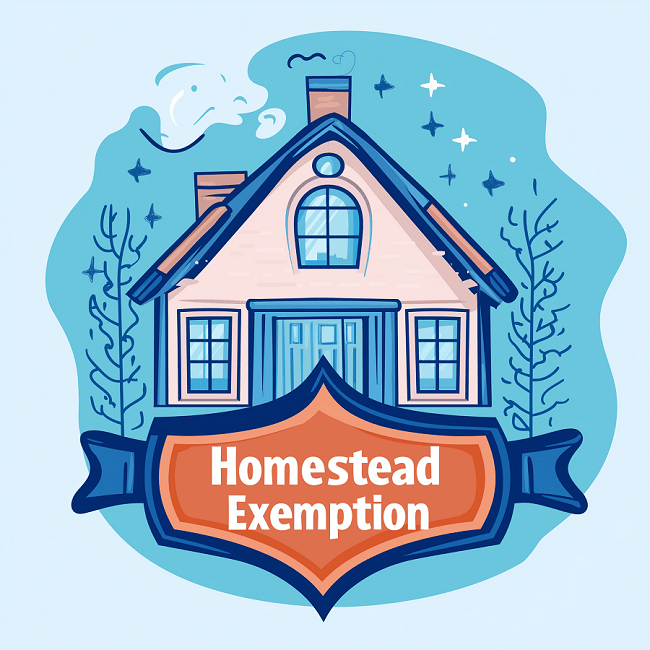If you die without a will or a trust, then the government creates its own estate plan for you called “intestate succession.” What this really means is, if you do nothing, the government will do everything. I call this plan the “Do Nothing Plan.” But, this name is not my own. I first heard it from Alexis Katz from the New Law Business Model. So, I wanted to be sure I gave her the credit for the name.
The California Intestate Succession Plan is a process that must go through the probate courts. Probate is a long and expensive process. You can learn more about the probate process in the following articles:
Estate Planning Explained: How to Leave Your Legacy
The purpose of this article is to explain the California’s intestate succession plan so you can decide whether to create your own plan, or do nothing.
Definitions
To understand intestate succession, you need to learn three legal terms. They are, “Community Property,” “Separate Property,” and “Quasi-Community Property.” This article is not going to get into too much detail about these definitions, because they can be very complicated. For now, I am simply going to provide you with a basic definition so you can understand the Do Nothing Plan.
Community Property: Community Property is any property that you and your spouse have accumulated during your marriage.
Separate Property: Separate Property is any property that you had before your marriage, and also any inheritance you receive during your marriage.
Quasi-Community Property: Quasi-Community Property is property that you or your spouse acquired while living in another state, that if it had been acquired in California, would have been Community Property.
These are the three categories of property you can own in California. Let’s look at what happens to these categories of property if you have no estate plan.
Intestate Succession Hinges on Two Questions
The outcome of the Do Nothing Plan hinges on two important questions. They are:
Question 1: Are you married?
Question 2: Do you have children?
If you die with no estate plan then the State imposes its own plan on you. The State’s plan is perfectly fine for some people. Therefore, if you are fine with the State’s plan for you then you just need to decide on one issue. Cost. An estate plan will typically cost between $1,000 and $2,000. These fees are upfront costs that you would need to pay before you die. Conversely, if you go with the State’s plan you can expect your family to pay on average of $22,000 after you die.
So what exactly is the State’s plan for your legacy? Well, the State’s plan depends largely on whether you are married, have kids, and own any separate property.
If You are Married, California’s Intestate Succession Plan Mandates that Your Spouse Get Most (Or All) of Your Property
If you die with no estate plan, and your spouse survives you, then the State puts all of your property into one of the three categories described above. As a reminder, they are community property, quasi-community property, and separate property. If you die with no separate property, then all of your property will go to your spouse. This is true, even if you have children.
What are the risks?
Most clients I work with want their spouse to be taken care of when they die. So, a plan requiring that all of the property go to a surviving spouse makes sense. But there are two primary risks (there are others, but I will discuss two major ones here).
First, what happens if your surviving spouse is not the mother or father of your children? Well, your children are effectively cut out of your estate. Your surviving spouse is not obligated to give any portion of your property to your children. So if you want both your spouse and children to inherit your property, the Do Nothing Plan is not for you.
Second, even if both you and your spouse share the same goal of leaving an inheritance for your children, there is a risk of undue influence. There is nothing inherently risky in leaving your property to your spouse, as long as you share the same estate goals for after your gone. But, after you are gone, there is a risk your spouse remarries or gets taken advantage of by a neighbor or caregiver. If your spouse remarries, and does not have an estate plan, your property could end up going to your spouse’s new husband or wife. If you surviving spouse needs a caregiver later in life, it is possible your property can be taken by nefarious neighbors or caregivers. I have litigated cases like these, and they are never pretty.
Proper estate planning can prevent these risks. For example, a living trust frequently prevents these kinds of risks from occurring.
Your Children Get a Share of Your Separate Property Under California’s Intestate Succession Plan
If you die with separate property, then the State will need to know if you are married and have any children. If you have a surviving spouse and no children, then your your surviving spouse will get all of your separate property. But, if you have children, then the State will want to know if you have more than one child. If you have only one child, then your child and surviving spouse will split your separate property 50/50. Finally, if you have more than one child, then your surviving spouse will get 33.33% and your children will split 66.66%.
What are the risks of your children getting your property?
There are some serious risks to leaving your children property unprotected by a trust. First, the creditors of your children can take your property to satisfy their debts. But with proper estate planning, you can avoid this. For example, a living trust typically includes a “spend thrift” provision that prohibits the trustee from giving your property to a beneficiary’s creditor.
Second, if your children are financially irresponsible or are suffering from an addiction, a sudden inheritance may exacerbate the problem. A living trust can protect your children from themselves.
If You Die With No Spouse and No Children, then Your Mother-in-Law May Get Your Property
The real fun of intestate succession comes when you die with no children, and no surviving spouse. If this is the case, then there is a convoluted succession plan that includes your mother & father-in-law. There is a link at the end of this article to an chart that outlines the entire California intestate succession plan. You can also find this information in Probate Code sections 6401 & 6402. For now, I will just summarize the succession plan by order of preference.
If you die without a surviving spouse or children, then your property will go to the following persons, in order or priority:
Parents
Brothers & Sisters
Grandparents
Aunt & Uncles
If none of the above are alive, and if you were never married, then:
“Next of Kin” (nieces, nephews, cousins)
If you have no “Next of Kin” then the State gets your property.
If you were married at sometime prior to your death then:
Step Children
Mother/Father-in-law
“Next of Kin” (nieces, nephews, cousins)
Brother/Sister-in-law
If you have no “in-laws” and no “Next of Kin” then your property goes to the State.
If you want to see a full chart for how intestate succession works, click HERE!
Conclusion
The Do Nothing Plan can be highly complicated and can result in weird things like your mother-in-law getting your property. It is very expensive; costing an average of $22,000 after death. Finally, it does not protect your property or your family from the risks of undue influence, interloping step children, creditors, and substance abuse. If you would like a plan that protects you, your property, your legacy, and your family, click HERE.
Regnum Legacy focuses its practice on protecting the people you care about. Led by James Long a trust and business lawyer with over a decade of experience, Regnum Legacy provides quality representation at affordable and flexible rates. We help protect your children and other loved ones through comprehensive estate planning, business planning, contract drafting, and (if necessary) aggressive litigation or dispute resolution. Our clients are not just numbers on a page but extended members of our own family. Feel free to call of to set up a free consultation (951) 228-9979, or email rachel@atlantislaw.com, and see how you can become part of our Regnum Legacy Family!
Disclaimer: Nothing in this post is intended to be legal advice to you or for a particular situation. Nothing in this post creates any kind of lawyer-client relationship. All legal cases are different and typically hinge on a complex set of varied factors. Therefore, if you think that your legal rights have been violated or that you need an attorney, please do not rely solely on this post for your legal advice. Consult with a lawyer immediately, or call Regnum Legacy at (951) 228-9979 to see if we can represent you.




